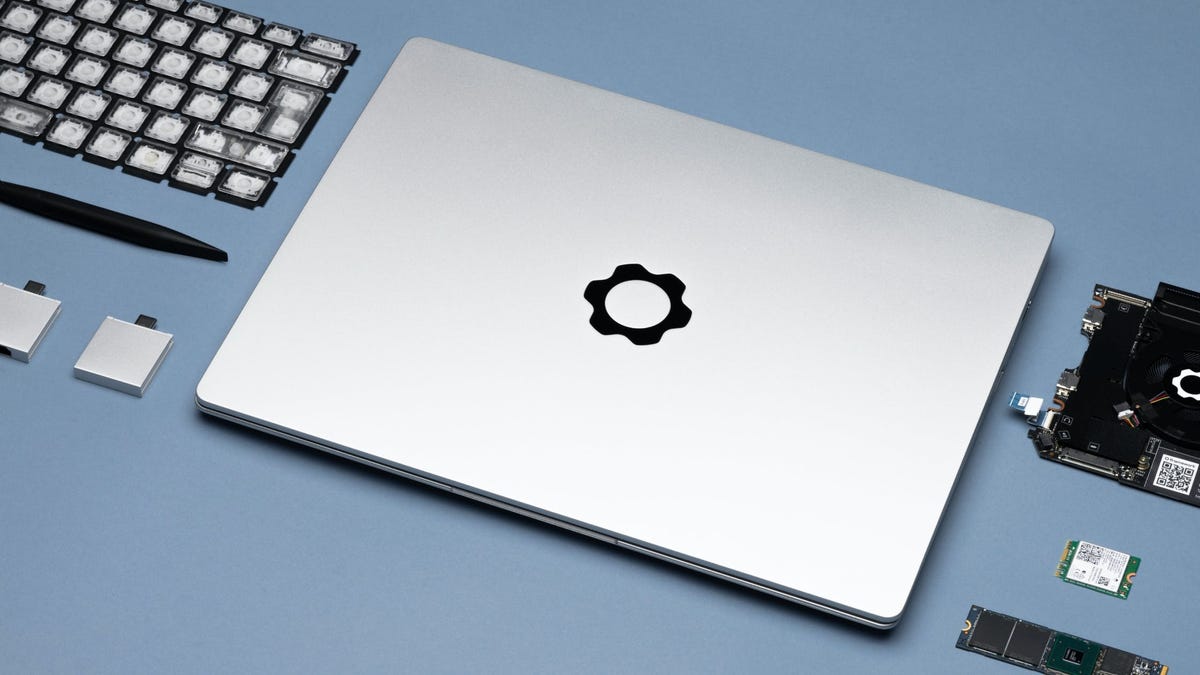Why Yes, I Would Love to Build My Own Customizable, Upgradable, Totally Repairable Laptop - 4 minutes read

San Francisco-based startup Framework just announced a thin, lightweight productivity laptop unlike any other on the market right now. Sure, it looks similar to the aluminum options almost every other laptop maker offers, but this laptop can be upgraded, customized, and repaired in ways that others just can’t.
To start, Framework laptops have four swappable port bays, which can eliminate the need for a separate port dock all together. Framework calls this the Expansion Card System. There’s the default USB-C card, which supports USB4, 20V/5A charging, and DisplayPort Alt Mode for connecting a monitor; a USB-A card that supports USB 3.2 Gen 2; an HMDI card that supports HDMI 2.0; a DisplayPort card for DisplayPort 1.4 support; a MicroSD port; a card for an extra 250GB or 1TB of storage, which kind of functions like an external drive; and Framework has more expansion cards in development for headphones, microcontrollers, and others.
You can not only choose what ports you want, but you can choose what side you want them on. So if you’re like me and use an external mouse with your laptop sometimes, you might want the charging or HDMI port on the left side so the cables don’t get in the way. (Also good news for left-handed mouse users!)
The laptop’s guts can all be completely customized. Framework says the entire mainboard can be swapped to boost performance as it launched new models with new processors down the road. The battery, screen, and keyboard are also totally replaceable, and Framework laptops also let users swap their keyboard language and layout, as well as customize the color of the detachable magnetic bezel.
The laptops can either come pre-assembled or disassembled for those who enjoy the DIY process.
According to The Verge, Framework founder Nirav Patel, who was one of the original Oculus employees and also previously worked at Apple, hopes to address the issue of electronic waste by allowing its laptop customers to swap out a host of different components in their device.
“As a consumer electronics company, your business model effectively depends on churning out constant tons of hardware and pushing it into channels, and into market, and into consumers’ hands, and then sort of dropping it and letting it exist out there,” Patel told The Verge. “It encourages waste and inefficiency, and ultimately environmental damage.”
Framework also puts the right to repair directly—and literally—in its customers’ hands. By maintain an ecosystem of easily replaceable parts, customers won’t have to replace their entire laptop if something goes wrong, or ship it back to the manufacturer just to replace a stick of RAM. (Some companies like to solder the RAM to the motherboard.)
Framework is not the first company to attempt some form of modular laptop or mini desktop design. We previously reviewed Intel’s NUC 9 Extreme Kit, and Intel also quietly launched its Phantom Canyon NUC 11 lineup during CES last month. Alienware also had its big dream of swappable components with the Area-51m R2, but it didn’t translate so well with customers due to the unavailability of Nvidia RTX Super GPUs for upgrades. Google even had a modular phone, Project Ara, which it eventually scrapped.
But it seems like Framework could be the first company to make a modular laptop work. The advent of Intel’s 11th-gen Tiger Lake mobile CPUs, which contain both the CPU and GPU on a system-on-chip (SoC) form factor, not to mention the smart design choice of swappable ports, make this laptop an attractive option for those who want or need that little bit of extra customization.
Framework will start shipping its customizable laptops in summer 2021. You can sign up on its website to be notified by email when you can place an order.
Source: Gizmodo.com
Powered by NewsAPI.org